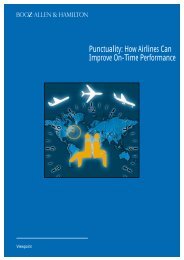The sentence
The sentence
The sentence
Create successful ePaper yourself
Turn your PDF publications into a flip-book with our unique Google optimized e-Paper software.
E. Number (singular and plural) (1)<br />
Nouns with plurals ending in –s or –es: ‘friend’, ‘matches’<br />
1. We add –s to form the plural of most nouns.<br />
We pronounce –s as /s/ after these sounds: /f/ chiefs; /k/ cakes; /p/ taps; /t/ pets; /ø/<br />
months.<br />
We pronounce –s as /z/ after these sounds: /b/ verbs; /d/ friends; /g/ bags; /l/ bells;<br />
/m/ names; /n/ lessons; / / songs; vowel (a, e, i, o, u) + s: eyes, or vowel sound + r:<br />
chairs.<br />
2. We add –es after nouns ending in –o: potato –potatoes; -s: class – classes;<br />
-x: box – boxes; -ch: match – matches; -sh: dish – dishes.<br />
We do not pronoune e in plurals like: cakes, clothes, tables, names, eyes.<br />
We pronounce the plural as /iz/ after these sounds:<br />
/z/: noises; /dz/: oranges; /s/: buses; /∫/: dishes; /t∫/: matches; /ks/: boxes.<br />
Nouns with plurals ending in –s or –es: ‘countries’, ‘knives’<br />
1. Consonant (b, c, d, etc.) + -y becomes –ies: country/countries, strawberry/strawberries.<br />
2. Vowel (a, e, o and u) + -y adds an –s: days, keys, boys, guy.<br />
Proper nouns (names spelt with a capital letter) ending in –y just add an –s:<br />
Have you met the Kennedys? <strong>The</strong> last four Januarys have been very cold.<br />
3. We change the endings –for –fe into –ves in the plural with the following nouns:<br />
calf/calves, half/halves, knife/knives, leaf/leaves, life/lives, loaf/loaves, self/selves,<br />
sheaf/sheaves, shelf/shelves, thief/thieves, wife/wives and wolf/wolves.<br />
4. We add –s or –ves to: hoof – hoofs/hooves, scarf – scarfs/scarves<br />
5. We just add –s to: handkerchief/handkerchiefs, roof/roofs.<br />
Nouns ending in –o and some irregular plural forms<br />
1. To nouns ending in –o, we add –es: hero – heroes, potato – potatoes, tomato – tomatoes.<br />
Or we add –es or –s: cargo – cargoes or cargos, volcano – volcanoes or volcanos.<br />
Or we add only –s: bamboons, photos, pianos, radios, solas, videos, zoos.<br />
2. We change the vowels of some nouns to form the plural: foot/feet, goose/geese,<br />
man/men, mouse/mice, tooth/teeth, woman/women. And note: child/children, ox/oxen.<br />
3. Some nouns have the same in –ese and –ss have the same singular and plural forms:<br />
a Chinese – the Chinese; a Swiss – the Swiss.<br />
F. Number (singular and plural)<br />
Collective nouns followed by singular or plural verbs: ‘government’<br />
1. Words like government and family are collective nouns because they refer to groups.<br />
2. We can use singular or plural verbs with nouns like committee, company, family,<br />
government and jury: What will you be doing while the family is (or are) on holiday?<br />
<strong>The</strong>se words also have regular plurals: Many families are in need of help.<br />
15




